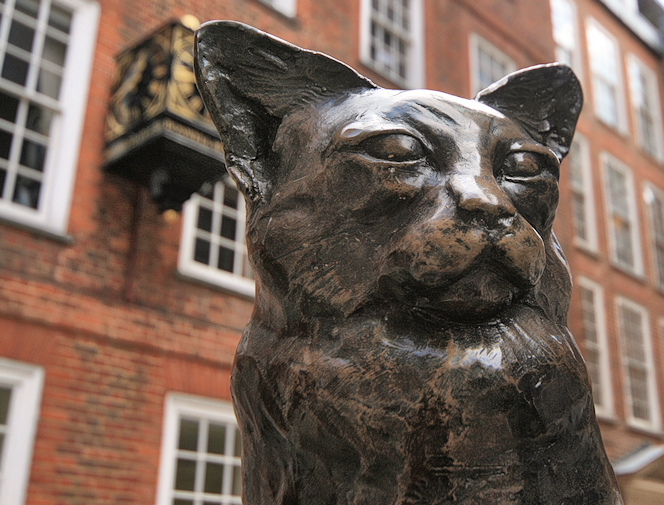Hodge
Hodge
Dr Samuel Johnson was the quintessential Londoner of the 18th century and he also uttered the most famous verdict on the city: “When a man is tired of London, he is tired of life; for there is in London all that life can afford” (20 September 1777). In 1755 he published his pioneering Dictionary of the English Language, the fruit of nine years’ labour, for which he was later awarded a government pension.
Hodge was his favourite cat, a much-indulged companion in the late 1760s and early 1770s. ‘Hodge’ is an alteration of ‘Roger’, and was used as a familiar and condescending name for a farm labourer or peasant, a country clown or rustic, in the 16th century.
In the Life of Samuel Johnson (1791), James Boswell records the lexicographer’s insistence that Hodge was ‘a very fine cat indeed’, after he had initially appeared to offend the animal by suggesting that he had had other cats he had liked better.
Jon Bickley’s bronze statue of Hodge (1997, shown below) stands outside Johnson’s house in Gough Square, off Fleet Street.
“The general conduct if we trace
Of our articulating race,
Hodge’s example we shall find
A keen reproof of human kind.”
Percival Stockdale: ‘An Elegy on the Death of Dr Johnson’s Favourite Cat’ (1778)


